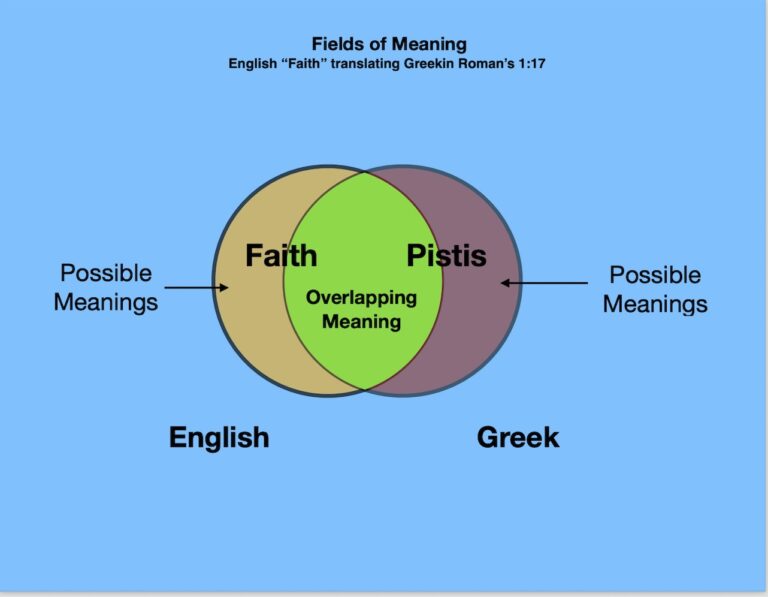Secret of Joy in a Troubled World
by G.S. Augustine

Joe led his family business and was a very capable manager. The business prospered and he and his family lived an upper middle class lifestyle. Joe was also an avid hunter and very adept. He taught his skills to others and even gave talks on hunting to kids at the local church AWANA program. His wife and daughters were beautiful and accomplished.
But Joe, in his mid-forties committed suicide after a long depression. We could chalk this tragedy up to mental illness, but that would not be the whole story. Anyone who knew him would doubt that was the main reason. Joe, like so many successful people, felt his success was smoke and mirrors. He was sure one day everyone would find him out. A friend of mine later intimated that Joe thought his life was meaningless.
Paradox of Wealth and Joy
As tragic as Joe’s story is, it isn’t uncommon. Self-help seminars teach success, but rarely explain why success doesn’t seem to produce the joy we all think it will. The Bible book of Proverbs teaches that wisdom can produce riches and honor. However, reading it too casually can give the impression that riches and honor is life’s ultimate goal.
A more careful reading however uncovers the real goal: a joyful life. Verses like “Better a dry crust with peace than a house full of feasting and strife” (Prov. 17:1), and “Better a meal of vegetables where there is love than a fattened calf with hatred” (Prov. 15:17) give indication that success as we sometimes define it won’t do.
Where The Book of Ecclesiastes Helps
The book of Ecclesiastes in the Bible fascinates some folks and puzzles others because it seems so pessimistic. Its inclusion into the biblical canon was debated by both Jews and Christians but in the end it was affirmed.
Craig G. Bartholomew, Ecclesiastes, Baker Commentary of the Old Testament Wisdom and Psalms, ed. Tremper Longman III, p. 20Ecclesiastes is one of those books that force us to wrestle with very difficult questions that are pursued relentlessly … It leads us back to the starting point of faith … [which] is a gift but Ecclesiastes reminds us that it is not cheap.
Ecclesiastes provides a corrective to potential misunderstanding in Proverbs. When we think “If I just did the right things I would be happy”, we are in for a bewildering disappointment. The book implies the writer is King Solomon, a few years before his death in 931 BC. Whether this is actually the case doesn’t affect our analysis, one way or the other. The book gives the perspective of a man who has accomplished great things. He acquired much wealth and indulged in all the pleasures of life. But in the end, everything “under the sun” is “meaningless and chasing after wind.”
Joy is a Gift You Receive
However, the author has an ace up his sleeve. He states three times that the ability to “enjoy life” is a “gift” from God. It is something we can and must receive from him (Ecclesiastes 2:24-26, 3:12-13, 5:18-20). Wealth and honor will accumulate in joyless existence unless God’s enables us to enjoy it (Ecclesiastes 6:1-3).
Ceaseless and redundant activity continues without anything truly new or lasting. Additionally, injustice, death, oppression, rivalry, loneliness, the tendency for people to devalue wise leadership make this world seem incurably sick. And yet the book ends on a positive note:
Here is the conclusion of the matter: Fear God and keep his commandments, for this is the whole duty of man.
Ecclesiastes 12:13
Clearly he is not advocating giving up. He even indicates by “Here is the conclusion of the matter,” that his argument has been leading up to this all along! If life has no point, he wouldn’t advise keeping commands. After all, if life is only misery and then we die, why bother? The phrase even alludes to some benefit but what?
What Have You Done For Me Lately?
It may be helpful to look at an experience we’ve all had at one time or another. We make plans for a big purchase—a car, a house, or some new equipment. We save, study the best makes and models, search the best prices and finally buy. And at first we’re thrilled. But sooner than we expected, joy wears off and we start seeking the next big thing.
This is also true of accomplishments. Sportscasters who interview winning football players after a Super Bowl often immediately begin asking about next year’s prospects. And fans soon start asking, “What have you done for me lately?” The author of Ecclesiastes puts it this way.
The eye never has enough of seeing, nor the ear its fill of hearing.
Ecclesiastes 1:8
Does He Who Dies With The Most Toys Win?
Here is a type of Socratic dialogue that will help explain why looking for meaning under the notion, “he who dies with the most toys wins”, is so disappointing.
- You have never wanted money. I would expect a strong “Not true!” from most people at this point. But I can prove it with a simple illustration. You can have $1 million in hundred dollar bills as a gift. However you may only have it if you are willing to live the rest of your life on a deserted island with no outside contact. And you must hold the bills loosely in your hands during a typhoon. “Ah”, you say, “of course I don’t want just worthless paper; I want what money can buy!”
- You don’t want what money can buy. “Yes I do!” you say. “In fact, I think I just said that!” Alright, let’s see. With $1 million dollars you can buy about ten railroad cars full of safety pins. Do you want that? “Well, no,” you say, “what would I do with ten railroad cars of safety pins! I want a new car and a new house and a vacation in the tropics. That’s what I mean when I say I want what money can buy.” However at this point I might refer to the times you acquired some great thing that soon lost its luster.
- You only want joy. We think cars and houses are better because we believe they will provide more joy. Cars and houses are typically more valuable than a lot of safety pins unless you’re a safety pin wholesaler. But the moment when only a safety pin will do, a car or house won’t. And if the situation is grave enough, a safety pin might just bring you more joy than a car.
A Hundred Times Happier?
But what if in the long run there is no real difference between safety pins and houses? What if they both have uses at appropriate times and are useless at others. What if the joy we find in them is only related to circumstance of our need. A house for shelter is important, but would I be any happier if I owed a hundred of them? Would that in and of itself produce lasting joy? Or would one house eventually seem the same as another?
If I’m out in the cold and hungry, a warm house and a hearty meal brings immediate happiness. But does it then follow that a hundred homes and a hundred meals make me a hundred times happier?
Does Harvard Know Happiness?
Robert Waldinger and Marc Schulz book, The Good Life, reports on a scientific study of happiness. The study was conducted through Harvard University compiling over eighty years of data. It concludes that money does bring a certain happiness when you have nothing. But it becomes an increasingly worthless pile of paper the more you accumulate. Real happiness comes from the strength of our marriages and families, our recreational and work relationships. The study also asserts that church relationships and Bible Study groups are major contributors to happiness.
Why Don’t The Kids Call?
Although it corrects a lot of misunderstandings, the study does not address the fact that our relationships are seriously troubled. Widespread divorce and broken families, crime and riot don’t help. College student protests are less about improving and more about destroying. Entitlement and demanding organizations polarize and even atomize communities.
Long gone are the days where a president can say: “Ask not what your country can do for you. Ask what you can do for your country.” That idea is suspect where indulging everyone’s demands masquerades as compassion.
Rivalries, Tensions, And Political Manipulation
There is a missing ingredient in Waldinger and Schultz and Ecclesiastes provides it. John Kennedy’s inaugural admonition was given at a different time. The United States thought itself then as “One Nation Under God.” The words “In God We Trust” was at least a perceived reality.
Throughout history, most nations rejected the authority of God, in practice if not always in creed. Average people lived under a hostile tension between conquerors and conquered, haves and have nots, powerful and downtrodden. Those on the top used their resources to stay at the top. Those on the bottom looked for ways to reverse their fortunes. No matter which group proved their mettle, the final result left people empty if not worse off.
The Missing Ingredient: Joy as Gift
The writer of Ecclesiastes offers as a solution something that people don’t possess automatically: God’s unsurpassing gift of “joy.”
A man can do nothing better than to eat and drink and find satisfaction in his work. This too, I see, is from the hand of God, for without him who can eat or find enjoyment? … Moreover, when God gives any man wealth and possessions and enables him to enjoy them, to accept his lot and be happy in his work—this is the gift of God. He seldom reflects on the days of his life, because God keeps him occupied with gladness of heart.
Ecclesiastes 2:24-25, 5:19-20
Joy’s Requirements
That last sentence, “He seldom reflects on the days of his life,” has an ominous tone. The troubles of this fallen world exist. Circumstances do not really change. There is still injustice and oppression, rivalry and death. The world is broken and only God’s kingdom as prefigured in Revelation 21-22 will bring the healing it requires. When Jesus taught us to pray “Thy Kingdom come,” he was pointing toward that end.
But what of the meantime? How do we live now with a sense of that rich future? Ecclesiastes tells us that God gives the capacity to enjoy his good creation. But to receive that gift, we need to open our hands to receive two other things. First is a reverence for God and his word by keeping his commands. And second is a trust that God will eventually make right all that has gone wrong. Doing this keeps our love alive and frees us from seeking the vengeance that only God can execute justly.
Now that all has been heard, here is the conclusion of the matter: Fear God and keep his commandments, for this is the whole duty of man. For God will bring every deed into judgment—every hidden thing, whether good or bad.
Ecclesiastes 12:13-14
Joy’s Compensations
The author of Ecclesiastes says “To the one who pleases him God gives wisdom and knowledge and happiness” (Eccl. 2:26). He defines “the one who pleases him” as the one who “Fear[s] God and keep[s] his commandments” knowing that every right thing will be rewarded and every wrong thing will be judged and corrected.
Contrary to what some might argue, this is not capitulation to the tyranny of an autocratic God. It is release from the hamster wheel of dissatisfaction from vain and empty materialism. And it is no asceticism either. Eating, drinking, possessions and meaningful work are now enjoyed to the full. There is also the added benefit that even in a troubled world “God keeps him occupied with gladness of heart.”




